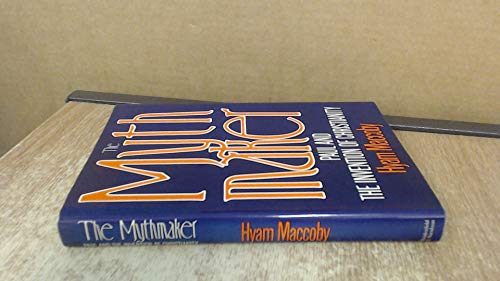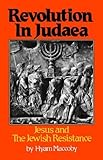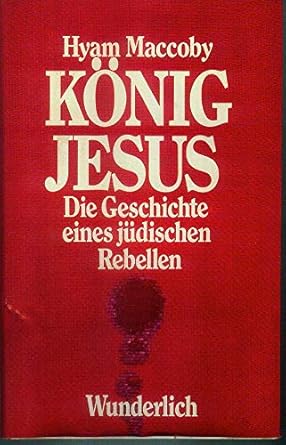Hyam Maccoby was a British scholar whose work on early Christianity and the historical figure of Jesus has provided a fresh lens through which to view biblical narratives. His theories challenge traditional interpretations and offer a more nuanced understanding of Jesus’ life and the socio-political context of his time. This article delves into Maccoby’s theories, examining their implications for our understanding of Jesus and early Christianity.
The Historical Context of Maccoby’s Work

Hyam Maccoby was born in 1917 and became a prominent figure in the study of Jewish history and early Christianity. His work primarily focused on the relationship between Judaism and Christianity, particularly how early Christian thought diverged from its Jewish roots. Maccoby’s most influential works include “The Mythmaker: Paul and the Invention of Christianity” and “Jesus the Pharisee: A New Look at the Jewishness of Jesus.” In these texts, he presents compelling arguments that reshape our understanding of Jesus and the early Christian movement.
Maccoby’s Central Thesis: Jesus as a Jewish Figure

One of Maccoby’s groundbreaking assertions is that Jesus should be viewed primarily as a Jewish figure, deeply embedded in the Jewish traditions and teachings of the time. This perspective contrasts sharply with the portrayal of Jesus as a Christian icon, removed from his Jewish heritage. Maccoby argues that:
- Jesus’ teachings were fundamentally rooted in Jewish law and ethics.
- His conflicts with the Jewish authorities were not indicative of a break from Judaism, but rather a reflection of internal Jewish debates.
- The portrayal of Jesus in the New Testament is often colored by the writings of Paul and other early Christians, who sought to distance their movement from its Jewish origins.
By emphasizing Jesus’ Jewishness, Maccoby invites readers to reconsider the narratives that have shaped Christian theology over centuries.
Paul’s Role in Shaping Christian Thought

Maccoby’s analysis of Paul is particularly critical. He asserts that Paul played a pivotal role in the development of Christian doctrine, often at the expense of Jesus’ original teachings. According to Maccoby:
- Paul’s interpretation of Jesus was influenced by Hellenistic thought, which diverged significantly from Jewish teachings.
- He emphasized faith over law, creating a theological framework that moved further away from Jewish practices.
- Paul’s letters often reflect a desire to appeal to Gentile audiences, leading to a reinterpretation of Jesus’ message.
This shift, Maccoby argues, contributed to the emergence of Christianity as a distinct religion, separate from Judaism, and laid the groundwork for later theological developments.
Jesus and the Pharisees: A Misunderstood Relationship
In “Jesus the Pharisee,” Maccoby explores the relationship between Jesus and the Pharisees, presenting a counter-narrative to the common perception of Jesus as an adversary of Judaism. He posits that:
- Jesus was himself a Pharisee, sharing many beliefs and practices with this sect.
- His teachings on love, compassion, and repentance align with Pharisaic interpretations of Jewish law.
- The conflicts depicted in the Gospels often stem from misunderstandings or misrepresentations of Pharisaic practices.
This perspective not only recontextualizes Jesus’ teachings but also invites a reevaluation of the Pharisees themselves, who have often been painted in a negative light in Christian texts.
The Socio-Political Landscape of Jesus’ Time

Maccoby emphasizes the importance of understanding the socio-political context in which Jesus lived. His theories highlight how:
- The Roman occupation created a climate of tension and resistance among the Jewish population.
- Jesus’ message of social justice and reform can be seen as a response to the oppressive political environment.
- His actions, such as the cleansing of the Temple, were direct challenges to the authority of both the Roman Empire and the established Jewish leadership.
By situating Jesus within this tumultuous context, Maccoby argues that his life and teachings take on a deeper significance, reflecting the struggles of his time.
Implications of Maccoby’s Theories
Maccoby’s theories have far-reaching implications for both religious and academic communities. They challenge long-standing beliefs and provoke critical discussions about:
- The nature of Jesus’ teachings and their relationship to Judaism.
- The role of Paul in shaping early Christian doctrine and its divergence from Jewish thought.
- The interpretation of biblical texts and the historical context of their creation.
These discussions can lead to a more comprehensive understanding of the origins of Christianity and its relationship with Judaism, fostering interfaith dialogue and reconciliation.
Case Studies and Examples

To illustrate Maccoby’s theories, we can look at various case studies and examples that highlight the interplay between Jesus’ teachings and Jewish traditions:
- The Sermon on the Mount: Maccoby points out that many of the ethical teachings found here, such as the emphasis on mercy and forgiveness, resonate with Jewish ethical teachings found in the Talmud.
- The Parables: Many of Jesus’ parables reflect themes common in Jewish literature, such as the importance of social justice and community responsibility.
- Miracles and Healings: Maccoby argues that Jesus’ miracles can be understood within the context of Jewish healing traditions and expectations of a Messiah.
These examples demonstrate that Jesus’ teachings cannot be divorced from their Jewish roots, reinforcing Maccoby’s central thesis.
Critiques and Counterarguments

While Maccoby’s work has garnered much attention, it is not without its critiques. Some scholars argue that:
- Maccoby oversimplifies the complexities of early Christian thought.
- His portrayal of Paul may not fully account for the diversity of thought within early Christianity.
- His views on Jesus’ relationship with the Pharisees may overlook key elements of the historical conflict between early Christians and Jewish authorities.
These counterarguments highlight the ongoing debates within the field of biblical studies and the importance of critical engagement with Maccoby’s theories.
Hyam Maccoby’s theories offer a refreshing perspective on the figure of Jesus and the early Christian movement. By emphasizing Jesus’ Jewishness and critiquing the role of Paul, Maccoby invites us to reconsider the narratives that have shaped our understanding of Christianity. His work highlights the importance of context—both historical and cultural—in interpreting religious texts and teachings. As scholars and laypeople continue to engage with Maccoby’s ideas, they contribute to a richer, more nuanced understanding of the complex interplay between Judaism and Christianity.
Ultimately, Maccoby’s work serves as a reminder that the study of religious texts is not merely an academic exercise but a means of fostering dialogue and understanding among diverse faith traditions. By exploring the theories of Hyam Maccoby, we gain valuable insights into the life of Jesus and the origins of Christianity, paving the way for a more inclusive and informed discussion about faith, history, and identity.